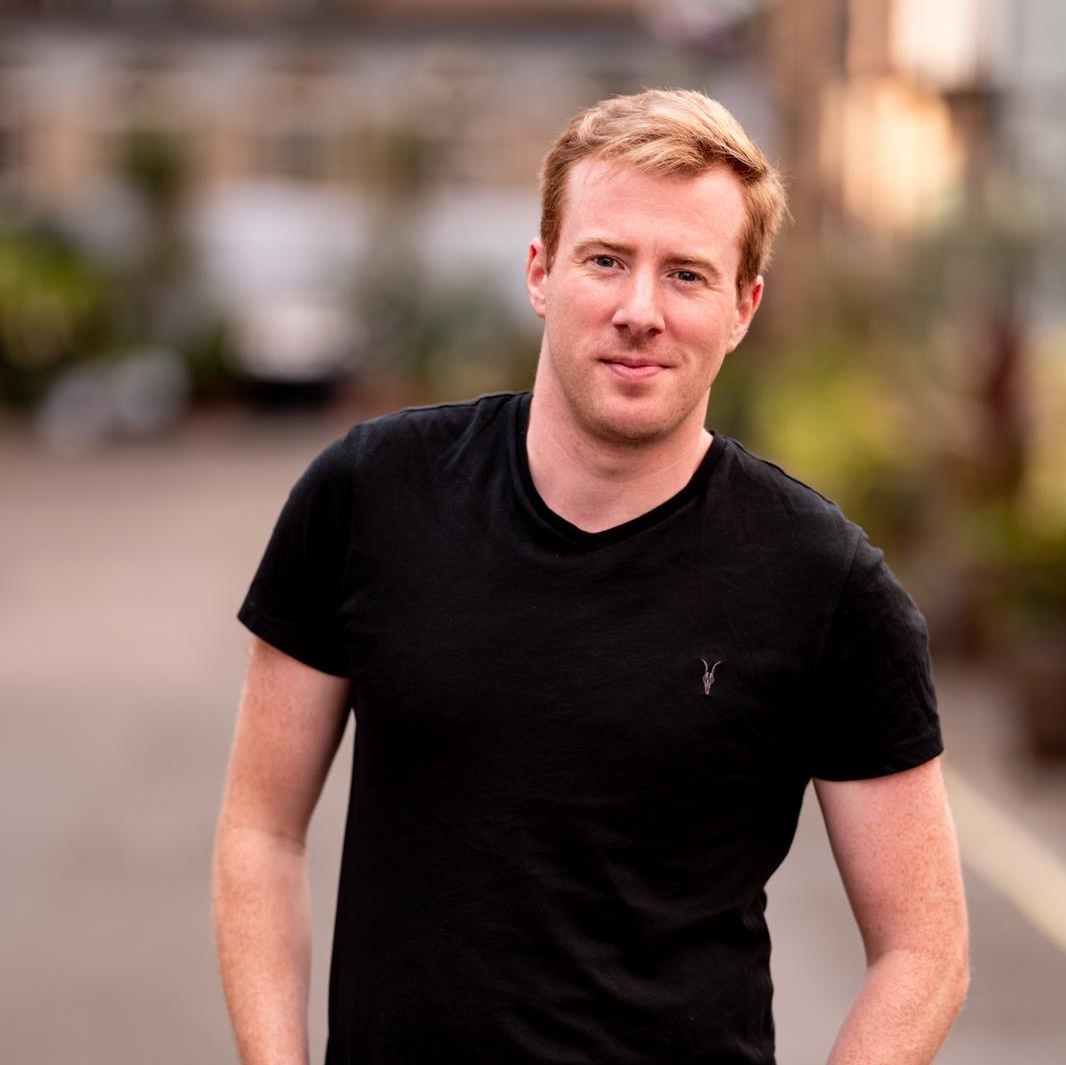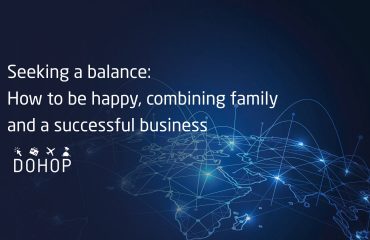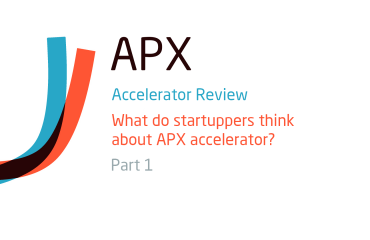The instance of Kasko

Almost everyone nowadays can easily list the most technological brands, where notable names like Apple, Tesla, or Google are at the forefront. Nonetheless, how many startups can we name, which are really bringing breakthrough ideas? In fact, thousands of startups offer great technological implementations but do not possess enough marketing instruments to compete with world-known giants.
However, startuppers still trying to conquer the most unexpected markets. Thus, can one imagine that a small firm creates a service that is used by the biggest insurance companies? Yet the answer is not so predictable, the instance of Kasko proves that it’s possible to offer an international service in the financial sphere. To know more about this unique case, we’ve talked to Matthew Wardle, a CTO and co-founder of Kasko.
What is Kasko?
To begin with, we asked about Kasko’s business idea and specifics. “We are a cloud platform for insurance companies to implement and sell their new products quickly,” stated Matthew. “Traditionally, in insurance companies, the release of a new product takes a long route. Presenting new ideas and products, setting an online sales flow, making appropriate APIs or other web links takes much time. All these technology stacks are very complicated for insurance companies and can take even months. With our platform, it takes less than 30 days. So, we allow technological launching of insurance products via our platform much faster, and that is our nowadays activity.”
A long way to the final idea
The way to a final startup idea is always unique and deserves additional attention, so we asked Kasko’s CTO to share it. “We started this company with my friend about five years ago. We noticed that the insurance sector lacked innovations, while there were a lot of innovations in banking like cool apps, cryptocurrency, and so on. Even though the insurance sector is also more about finances, there was nothing new in terms of innovations in it. So, we recognised that gap in insurance and tried to fulfil it.”
Traditionally, startuppers have exciting ideas and adjust them for the market needs, while the instance of Kasko shows that such a scheme can be inverted. “When we started making our first steps into the regarded direction, we didn’t have an exact or clear idea of what we desired to do. We just knew that we wanted to do something in insurance, and we didn’t want to continue work in consulting (smiling). Initially, we rolled over the place and moved together to Germany, Hamburg, and even changed a few cities between Germany and the UK during that early period. Eventually, we settled down, so my friend is in Germany while I’m in London, and we both focused on insurance,” stated Matthew.
What are the problems with short-term car insurances?
“Actually, we had a lot of other ideas for the insurance sector,” continued the interviewee. “The first thought was to provide very short-term car insurances, which one can buy via an app. It should be useful for those who want to borrow a car and receive insurance for one day or one week just by tapping in the app. We started to work on this idea but realised that it was hard to enter car insurance space, mostly from an advertising perspective. There were so many huge competitors in this sector that it required huge funds to beat them, which is not the case for a startup.”
Why aren’t all technological solutions suitable for the insurance market?
The second idea was more technological and was also aimed at resolving a particular problem in the insurance sphere. “In general, when you are buying insurance these days, it’s usually an outcome of buying something before. For instance, you go and buy something like a new bicycle or a moped, and only then the issue of insurance appears. Thought, you have to go to another website to buy insurance, and this is a two-step interaction, which is always an adverse element in sales. We thought that one step could be reduced and the website that sells bicycles can suggest insurance to their clients via a single payment transaction.”
Even though such a solution seems to be tremendous and technological enough to be accomplished via a startup, there were several obstacles to realise it. “This idea seemed to be great. So, online retailers could add such insurance function to their website, and we really could produce an appropriate software. However, we found that insurance companies had to offer a good variety of appropriate policies, which took about a year to produce needed belays. Also, some online retailers were ready to add insurance option by themselves. All these obstacles, especially related to terms, were not relevant for a startup too. So, we came to the current idea and became working with insurance companies directly and became an enterprise platform for them.”
Be ready for a tough beginning
Getting early funding is always amid the most challenging tasks for startups, and Matthew confirmed that fact. “We worked for the first 3-4 months without money at all. All the work was accomplished in the flat in Hamburg, and it seems to be a usual startup way. If you are diving into a startup sea, you have to possess some starting money to be ready to work for a few months without investments. It is just survival in some meaning,” claimed the interviewee.
“If you are diving into a startup sea, you have to possess some starting money to be ready to work for a few months without investments.”
Matthew Wardle
How are accelerators helping young entrepreneurs?
Among the most obvious ways to receive some support for a prospective startup is joining an acceleration program, and Kasko founders did not hesitate to use such an approach. “The next step was joining to the acceleration program called C-Camp. In the beginning, we were applying to every accelerator we could. We didn’t have a business at the beginning and had only an idea, plan, and PowerPoint for pitching. Finally, we received an invitation from two accelerators and decided to go to the C-Camp, and that was our first background for further work.”
As one of the greatest benefits of every acceleration program is a network, Matthew and his co-founder started to use it. “After joining C-Camp, we started visiting all the startup events where it was possible to get angel financing or other sources of possible funding. During those meetings, we found some people and investors who were interested in our idea, and the first funding came. We were quite lucky with one of the investors, who was a German VC. So, we received our first 50k euros or something around this sum, which helped us to survive for about half a year and continued seeking further financing. We tried to go to another round and receive half a million or even a million investments from angel funding or some VCs.”
Pitching can be different
The stage of getting the first financial support is usually about successful pitching, and every startupper has own advice for it. However, Kasko’s CTO said that “it’s quite impossible to give a single and right answer on how to pitch (smiling). Some people pitch on vision as it’s a key aspect that allows showing revenues like billion dollars in perspective, and it works. However, we relied on another approach and made an emphasis on the financial side,” explained Matthew.
“We had a very clear and realistic financial plan,” continued the interviewee about the pitching specifics they used. “We did not promise unreal revenues after some investments. Our proposition was something like doubling 1 million pounds of investments in a year. We showed that we could hire a team of experienced software developers for that money, they build a unique platform, which is needed for the list of big customers. It’s a quite conservative approach that restricts investor interest to some extent, but we knew that we could not handle with 50 million investments (smiling). We also wanted our company to be financially stable and successful, so we made all the financial calculations pretty well, which helped to persuade needed investors.”
How COVID-19 affects startups ecosystem
Taking into account the current situation caused by the coronavirus, Matthew explained why such a pitching approach makes sense. “It’s always quite risky to build a startup, especially now, and even the biggest ones are struggling. So, we believe in a much more conservative approach. If you have a clear business plan, which proves that you will make revenue during the first year – it’s a key to investors. It’s very important to know and show that founders understand how the product fits clients’ needs, how the investments will be spent, and the things alike, and that was our way. To me, during the economic recession, the investment climate will change, and none would be ready to invest millions in the company that possibly will generate revenue only in a couple of years.”
“If you have a clear business plan, which proves that you will make revenue during the first year – it’s a key to investors.”
Matthew Wardle
Finding clients can be regarded as an essential issue for startups, and the interviewee shared how they accomplish this aspect. “We find our customers mostly through events as we try to speak a lot and attract the attention of the potential customers on the appropriate insurance events. We know that talking about all that stuff is important and increase awareness about technologies like ours. Of course, due to coronavirus, there are no events, so we changed the strategy, and now we are more talking about our approach mostly in LinkedIn. However, the company’s growth forces to interact with customers via diverse channels, so we also have a marketing staff that use other ways to talk with potential clients.”
Big corporate clients is not an obstacle for small firms
Another interesting aspect of all the interviews with startup founders is the story about the first client. “We had contact with our first customer when we were on the stage of a floating idea as we had numerous conversations across Europe that times. We had enough discussions both with insurance companies and even their potential clients. What is interesting, our first customer is still our biggest one, and it’s mostly related to the good contact we have managed with them. So, every side enjoys this cooperation. No one should scary of the company’s name as you are usually working with one person and you have to manage a good contact with him or her only, but not with the whole firm,” shared Matthew.
“No one should scary of the company’s name as you are usually working with one person and you have to manage a good contact with him or her only, but not with the whole firm.”
Matthew Wardle
What is the specifics of being an insurance platform?
We also asked Kasko’s CTO about their business specifics, type of clients, and if they are internationally oriented. The first claim was quite unexpected. “I would say we are working in B2B by 50%. It means that we are used as a platform for insurance companies to sell products to their customers. So, we cooperate both with people who buy insurances and with policy providers as well. Currently, we are present in seven European countries, but we are already looking at America and Asia.”
Hiring developers in Eastern Europe is beneficial
The scales and specifics of the Kasko’s service forces to think that their platform requires a considerable programming team and Matthew confirmed this assumption. “We actually have a team of about 30 developers in Latvia, and we have a company and office there. To be really honest, I’ve already worked with this East European country while being in the previous working place, which was a big consultancy company. So, I knew a couple of people. In general, they are cheaper than coders in London and are still have a high professional level, including the English language. At the same time, almost absent time gap makes such cooperation really comfortable,” added the interviewee.
How to measure success and set an appropriate workflow?
To keep such a huge programming staff means having a well-set working process. In this case, one of the key aspects belongs to controlling all the employees, and Matthew explained what success measuring metrics they are using. “On this stage, the number of customers and the number of represented products matter the most. Another important metric, especially in B2B, is the usage of the platform by the customers. The issues like ‘how cool are your platform, how many time do clients spend on it, how does the interaction set?’ and related things are of the primary focus.”
Continuing the conversation about the workflow, we asked about the most exciting aspects that Matthew sees in Kasko now. “For us, it’s all about volumes which we make through the sales, although it’s quite a boring answer. The most interesting in it is the confirmation that you are doing the right things and your product is really relevant, and sales are only an objective confirmation of it. During the last 12 months, we were doing a quite good job in this case, and we could hire another ten salespeople. It’s another exciting element in our work, as a CEO hasn’t to focus on sales himself and should be only a mentor or supervisor. It’s not interesting having a founder being the salesperson; much more exciting is to manage 23-year-old individuals that are studying in the university or just graduated. We are now at this stage when such a selling approach is interesting to us.”
Didn’t coronavirus change the plans?
Despite the fact that COVID-19 has shaken the whole world and small business in particular, it is still interesting to hear how startups plan their future. “It’s hard to forecast things now as we have to change a lot of the processes,” began the interviewee. “However, we still planning the same things and focused on moving to new markets like Asia and NA. Currently, we plan to consolidate with our existing customers and only in the next year focus on further international expansion.”
What are the threats of working with insurance companies?
The traditional question about the difficulties and possible threats is among the favourite ones among our readers as it often becomes useful for most startups independently of their business specifics. “Unexpectedly, we don’t have competitors as this space is quite huge to be scared of it. Apparently, one of the cornerstone aspects that can be regarded as the threat is related to the expression ‘don’t put all your eggs in one basket’. When you are working for a long time on the big deal with one enterprise, and you are expecting it will change the whole life of your firm, you have to be ready that it can easily be crashed or cancelled. So, you have to be rather attentive to those clients and don’t expect too much not to be disappointed at the end,” concluded Matthew.
“Another problem we met was related to cooperation with large insurance companies. Usually, it takes a lot of time for setting and adjusting the workflow with such clients. On the contrary, startups are focused and ready for much quicker cooperation. For instance, we have an insurance company, and it took us two years to complete the deal with them. So, that is one of the biggest problems we usually meet because cooperation with big companies requires quite another approach that is common for startups.”
It’s time for technological startups
Even though such a difference between huge and small business seems to be obvious, its discussion opened even a broader polemic about the attitude of other firms to technological startups. “Nowadays, both in the consumer and business sectors, you can easily find the willingness to work with technological startups more than ever before. In the consumer sector, there are a lot of people who are happy to have such a service. Kasko has proven that in the UK. We also saw how the situation has been changing in the B2B as we found much more resistance when offered our product to businesses a few years ago.”
Matthew sees the reason for such changes in the clients’ behaviour and speed of implementations. “Customers now expect more and expect better services. If you are a bank and don’t have a nice app, you are losing too many clients even if you suggest the best rates on loans and deposits. As big firms are too inert for providing quick implementations by themselves, technological startups receive more chances to conquer a market. So, the situation changed a lot during the last ten years, and shareholders understand that if not working with startups, the company may die. In our case, insurance companies didn’t have any innovations, but now they are obliged to use online technologies like ours. It’s a good time for startups to cooperate even with big firms.”
“The situation changed a lot during the last ten years, and shareholders understand that if not working with startups, the company may die.”
Matthew Wardle
The importance of the team cannot be overestimated
However, young entrepreneurs should not be too confident in the success of their startups, and the interviewee made a pitstop on a team. “The number one bit of advice is having a good team, which is more important than the idea itself. If you have a team with a good range of skills, they actually can find an idea (smiling). The proficiency of the staff is something that VCs and angels are investing in, especially at the beginning. Too many startups don’t have an appropriate combination of effective CCO, CTO, CFO, and CEO, and therefore, they don’t receive funding as no one wants to speak with a founder without a team. For instance, there are dozens of companies that have technologies better than big firms have, but no one heard about them as they don’t possess an effective marketing team,” concluded Kasko’s CTO.
“There are dozens of companies that have technologies better than big firms have, but no one heard about them as they don’t possess an effective marketing team.”
Matthew Wardle
What is the problem with worldwide leaders and books?
What relates to the inspiration sources, following famous people is not Matthew’s method. “I like notable individuals, but not in all the aspects as I’m a technical guy. It’s easy to look at all these prominent businessmen and see what they did, but it’s hard to convert or implement what they told. Success stories are not a guidebook, direct copying or following doesn’t work. Usually, it’s more about your skills, experience, and actions. Also, one has to understand that there is a difference between the US and Europe, as VCs, capital, market and all this stuff is working in quite another way there. Thus, I think in Europe, it’s more about a clear business model, while in America it’s more about vision.”
The interviewee also showed a sceptic attitude towards book reading. “I read a lot, but not books. It could be blogs, articles by those who created firms, some online materials or even technical documentation. However, when someone decided to build a startup, he or she has to be aware of basic things like ‘how business works, what is market, how to persuade a client’, and things alike.”
Technical background is always useful
Finally, we asked Matthew what would he be doing if not building Kasko, and his answer was pretty usual, at first. “Probably, it would be a CTO role in another startup as I find it rather interesting.” However, after a short pause, he added: “but the reality is that I would be working in consultancy (smiling).”
Knowledge, optimism, and the desire to create a valuable product always were drivers of startuppers, and Matthew Wardle confirmed it. Again. Nevertheless, our interviewee also showed that now is the best time for implementing technological products, and small companies received wider opportunities in this case. So, gather appropriate team, prepare a pitch, and don’t be afraid of big corporations – they are waiting for your ideas.




